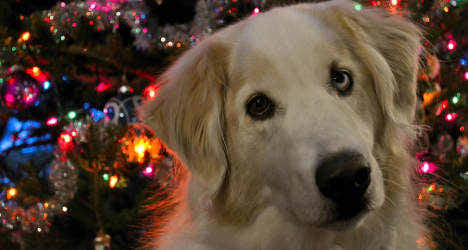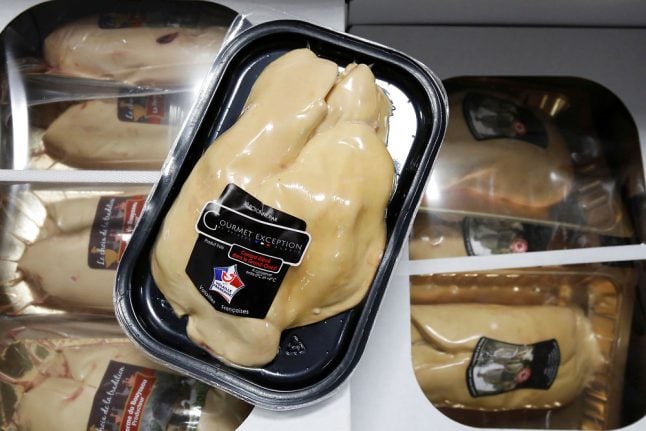The French, just like the British, Irish and Americans, have their own time-honoured Christmas traditions.
And just like in the English-speaking world, food plays a central role in France’s yuletide festivities.
Veterinarians, however, have made a public call for French animal-lovers, and dog-owners in particular, to resist the temptation to share their christmas treats and French delicacies with their furry friends.
Foie gras, the French Christmas delicacy par excellence, should be restricted to human consumption, said Laurent Gouardo, an emergency veterinarian at the Maisons-Afort veterinary school near Paris.
“At Christmas, I treat a lot of pancreatitis – a large inflammation of the pancreas caused by consumption of foie gras, but also by intoxication from garlic, onion and grapes,” he told AFP.
Vet Céline Moussour, another of the animal specialists coming forward this week to give French pet-owners what could be life-saving advice, told AFP on Tuesday that more common christmas treats were also hazardous to pooches.
“I had the case of a boxer dog who died of a heart attack after stealing and eating some dark chocolate at Christmas,” she said.
Likewise, the high salt content in smoked salmon and ham – traditionally served over Christmas in France – means they should be kept away from Fido, warned Gouardo, another of the animal specialists coming forward this week to give French pet-owners what could be life-saving advice.
As well remembering not to feed Christmas treats like chestnuts to canine companions, dog-owners should also be wary of other features of the festive season.
Attention should be paid to the traditional tree in the corner of the living room, and plant-based decorations that young dogs might chew on, says Céline Moussour.
The expert in herbal medicine has some advice for dog-lovers who just can’t help themselves when they see those slobbering, pleading faces.
“If you want to treat them, you can give them a little bit of lean meat,” she says, “but no bone, and no sauce.”
“Or, you can buy them some special little doggy treats to put under the tree as a present,” Moussour added.



 Please whitelist us to continue reading.
Please whitelist us to continue reading.
Member comments